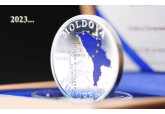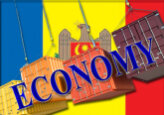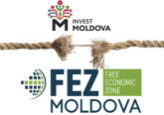
It's all good, but it's not certain. The main events and trends of 2024
Comment by InfoMarket
The leap year gave us one extra day a year. But by the feel of it, even this, the 366th day, was tense and complicated. The war on the border with Moldova continues and other military conflicts in the world escalate; elections, including in Moldova's partner countries, add uncertainty; protests by agrarians, transport workers, teachers, trade unions and the opposition take place against the backdrop of rising living costs. There is a general fatigue and a sense of deja vu amid cyclical events, such as a possible energy crisis. “What follows from this? - We should live!”
InfoMarket agency, by tradition, presents a subjective summary of important events and trends of the outgoing year.
Stagnation in 2023 was replaced by modest and uncertain economic growth in 2024. Data from the National Bureau of Statistics for 9 months of 2024 indicate that Moldova's GDP amounted to 233.1 billion lei, increasing by 0.6% compared to the same period in 2023. At the same time, the situation deteriorated in the third quarter - GDP decreased by 1.9%. Experts, the government and international partner organizations several times worsened the assessment of economic development, but in general forecasted economic recovery to 2-3% at the end of the year. Economic growth is supported by domestic consumption and public investment. At the same time, the main risks are associated with the agricultural sector (a decline of 10-15% is expected there), stagnation in the industrial sector, as well as external factors that will affect export activity and private investment.
Poverty remains a big social issue. In 2023, the absolute poverty rate in Moldova increased by 0.5 p.p. - to 31.6%. One of the factors was also the reduction of foreign remittances: in 11 months of 2024, the volume of remittances to Moldova from abroad in favor of individuals through banks amounted to $1.4 billion - by 1.6% less than in the same period last year. This is also due to the crisis in the cost of living and reduced demand for labor in the host countries. Families with children, people with disabilities, workers in the agricultural sector, and the elderly are most affected by poverty. By the way, this year for the first time the National Bureau of Statistics has calculated multidimensional poverty indicators - the level of poverty depending on the components of poverty (lack of sanitary conditions, access to medical services, etc.). According to general estimates, at least 163 thousand residents could fall into even greater poverty if they are not provided with assistance. In the 2024-2025 heating season, the government continues to pay compensations to citizens, but their size (300-800 lei in November and 500-1000 lei in December) has provoked a wave of discontent among citizens. The government also says that it wants to increase the income and support of citizens, and relies heavily on the “Restart” reform of the entire social protection system, which started this year.
Red tape reduction and simplification of business environment amid unpredictable decisions by the authorities.The government continues to introduce measures to de-bureaucratize and create adequate conditions for business. For example, between January and December, four packages of legislative amendments were approved to simplify the business environment (IV-VII). Nevertheless, some poorly justified government decisions, absence or change of the rules of the game during the game, and inconsistent decision-making have overwhelmed the de-bureaucratization efforts. For example, the tax policy for 2025 was approved back in the summer, but a series of amendments followed. Budget planning also leaves much to be desired - budget consultations only started in December. All this creates uncertainty for business. At the same time, the authorities continue to support business within the framework of existing programs. For example, under the “373” Investment Incentive Program alone, almost 700 entrepreneurs received favorable loans. The total value of loans granted to them amounted to about 2.2 billion lei, while their investments in the national economy reached 3.2 billion lei.
European integration remains a priority: Moldova and the EU have started formal accession negotiations. Moldova has implemented all 9 recommendations of the European Commission, which opened the start of formal accession negotiations. The EU Council approved the negotiating framework, which sets out the basic principles of the accession process. But this process is preceded by a multi-level quest - bilateral screening by clusters. The entire government team is responsible for these processes, a separate Deputy Prime Minister for European Integration has been appointed, and all civil servants involved receive special allowances. And as a result of the referendum, Moldova's accession to the EU is included in the Constitution as a strategic goal of Moldova.
Presidential elections and referendum “on the brink”. In this year's elections, Maia Sandu managed to retain the presidency. She became the second Moldovan President to hold the position of head of state twice (before her only Voronin, but he was not elected by popular vote). These elections showed a high level of popular support for the main opposition candidate, the former Prosecutor General of Moldova, who was backed by the Party of Socialists of Moldova, Alexandr Stoianoglo. As in the previous elections, Moldova voted not so much “for” the candidate as “against” the President who has already shown herself so far, but the Diaspora voted for the European path with which Sandu is associated. The referendum for inclusion in the Constitution of Moldova of EU accession as a strategic goal of Moldova almost failed, and again the Diaspora “saved” the situation. Whether under the influence of Kremlin propaganda or a widespread campaign of vote-buying, these elections demonstrated the relative fragility of political processes.
Moldova expands trade to the EU: exports of fresh poultry meat and eggs to the EU have begun. Since March 2024, Moldovan poultry farms have been authorized to export their products to the EU. But no one could ensure compliance with the strict sanitary-veterinary and food safety requirements of the European Union. And this year the producers managed to achieve the necessary level of compliance and deliver the first batches of poultry meat and chicken eggs to the Moldovan market. It is also worth noting that the European Parliament approved the decision to extend trade liberalization measures for Moldova for another year. This means the preservation of duty-free regime of export to the EU of 7 categories of agricultural products from Moldova, which are subject to tariff quotas: tomatoes, garlic, table grapes, apples, cherries, plums and grape juice. It is worth noting that 66% of Moldovan exports are shipped to the EU.
Deal of the year on the Moldovan banking market, consolidation of retail chains. Victoriabank acquired 100% of BCR Chişinău. The purchase and sale took place on the Stock Exchange back in January; the Moldovan branch of Romanian BCR Chişinău was sold to Victoriabank for 224.01 million lei (EUR 11.5 million). Procedures related to the transaction are being finalized, and soon BCR Chișinău will be fully integrated into Victoriabank, thus 10 banks will remain in the Moldovan banking market. It should be noted that the largest shareholders of Victoriabank are Banca Transilvania (Romania) and the European Bank for Reconstruction and Development through the Dutch company VB Investment Holding BV, which owns 72.19% of the Moldovan bank's shares. At the same time, deals in the trade sector were announced during the year. Large companies enlarge their business and influence. For example, Moldretail Group (Linella, Fidesco, Cip Market, Bravo and Slavena Megamarket) acquired Fourchette-M (Fourchette and To-To chains), while the owner of Local and Bonus chains acquired Velmart and Green Hills chain stores. Food distributor Slavena Lux acquired 100% of the authorized capital of DiNova. Birivofarm (owner of the Felicia chain), which previously acquired the Gedeon Richter pharmacy chain, acquired another pharmacy chain Peon, etc.
More than 2.8 billion lei for the “European Village” and millions for education while the birth rate of the population is decreasing. The government's ambitious program for the development of the country's rural infrastructure allows state and local investments to improve roads, water supply and sewerage systems, renovate kindergartens and solve other problems at the local level. At the same time, investments are being made in the construction of model schools and their regionalization. In essence, this means optimizing small rural schools and bringing the education system even closer to the Western model. Also discussed is further optimization, or more precisely, unification of large universities (USM and UTM), which are experiencing difficulties with the shortage of students. The plans include the development of an educational offer to “import” students - attract foreigners to study in Moldova.
“Gazprom” announced that it is stopping gas supplies to Moldova. The gas issue has been on the agenda for months due to the expected cessation of Russian gas transit through belligerent Ukraine. The contract between Ukraine and Russia on gas transit through the Ukrainian territory expires in December - Russia and Ukraine have not agreed to extend the contract or sign a new one. Gas was also supplied through this corridor to Moldova, more precisely to its left-bank part. The right bank has been buying gas from European and international platforms for two years and, according to Moldovagaz, the gas is contracted until the end of March 2025. But in its official statement, the Russian concern said that it stops gas supplies due to the refusal of the Moldovan side to settle debts to PJSC Gazprom for gas supplies. This means that Gazprom is not going to consider alternative routes for gas supplies to Moldova either, and the historical debt, on the amount of which Moldova and Russia have disagreements, is the main stumbling block.
Once again, state of emergency. If at the beginning of the year the country was rebuilding on the back rails after a four-year emergency state due to the pandemic, then at the end of 2024, due to the uncertainty with gas supplies to Transnistria, the Moldovan authorities resorted to the already rolled out mechanism of the state of emergency, starting from December 16. The main argument in the authorities' rhetoric was “300 thousand Moldovan citizens who live in the Transnistrian region” and the humanitarian crisis in the region. But there is also a pragmatic issue behind the “saving” of Transnistrians: Russian gas was used to produce electricity, which Moldova purchased from the Moldavskaya GRES in large volumes (more than 80% of total consumption) and at a low price. Now Moldova will have to buy more energy from Romania, competing on the procurement market with the same Ukraine, whose energy infrastructure suffered from bombing. By the way, there is also state of emergency in the Transnistrian region, where they are taking urgent measures to enter the new year without gas and almost without light (part of the electricity is generated by the Dniester Hydroelectric Station). In general, the flash mob “in the dark, but without you” organized a couple of years ago is practically a real case right in the middle of winter.
And finally, in the context of the situation that has arisen, the crisis is again discussed in the public space as an opportunity: against the backdrop of the gas crisis - an opportunity to start the reintegration of the Transnistrian region with Moldova, against the backdrop of the war in Ukraine and the hope for its end - an opportunity to attract investments and create a hub for companies that will participate in the reconstruction of Ukraine.... Anything is possible. Follow the events together with InfoMarket agency, a reliable and trustworthy source of news.
InfoMarket Agency wishes everyone good luck, optimism, health, fulfillment of plans and good news in 2025!







